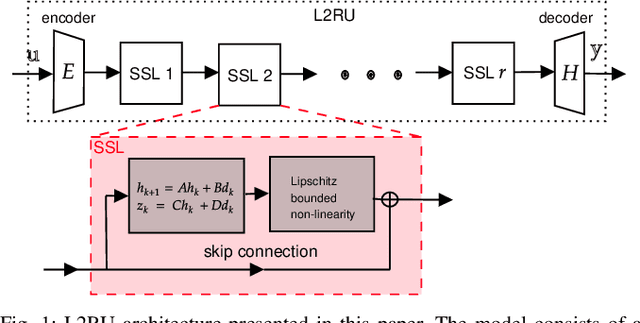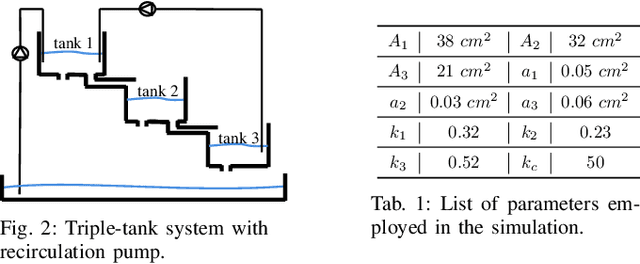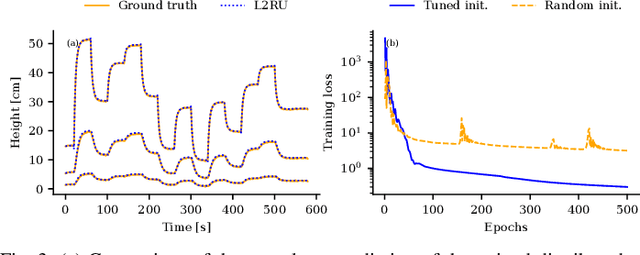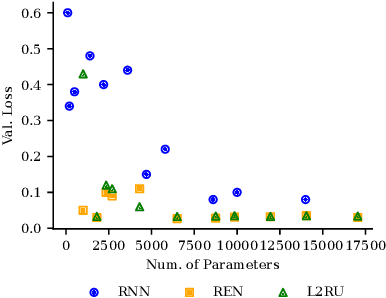Leonardo Massai
Free Parametrization of L2-bounded State Space Models
Mar 31, 2025



Abstract:Structured state-space models (SSMs) have emerged as a powerful architecture in machine learning and control, featuring stacked layers where each consists of a linear time-invariant (LTI) discrete-time system followed by a nonlinearity. While SSMs offer computational efficiency and excel in long-sequence predictions, their widespread adoption in applications like system identification and optimal control is hindered by the challenge of ensuring their stability and robustness properties. We introduce L2RU, a novel parametrization of SSMs that guarantees input-output stability and robustness by enforcing a prescribed L-bound for all parameter values. This design eliminates the need for complex constraints, allowing unconstrained optimization over L2RUs by using standard methods such as gradient descent. Leveraging tools from system theory and convex optimization, we derive a non-conservative parametrization of square discrete-time LTI systems with a specified L2-bound, forming the foundation of the L2RU architecture. Additionally, we enhance its performance with a bespoke initialization strategy optimized for long input sequences. Through a system identification task, we validate L2RU's superior performance, showcasing its potential in learning and control applications.
 Add to Chrome
Add to Chrome Add to Firefox
Add to Firefox Add to Edge
Add to Edge